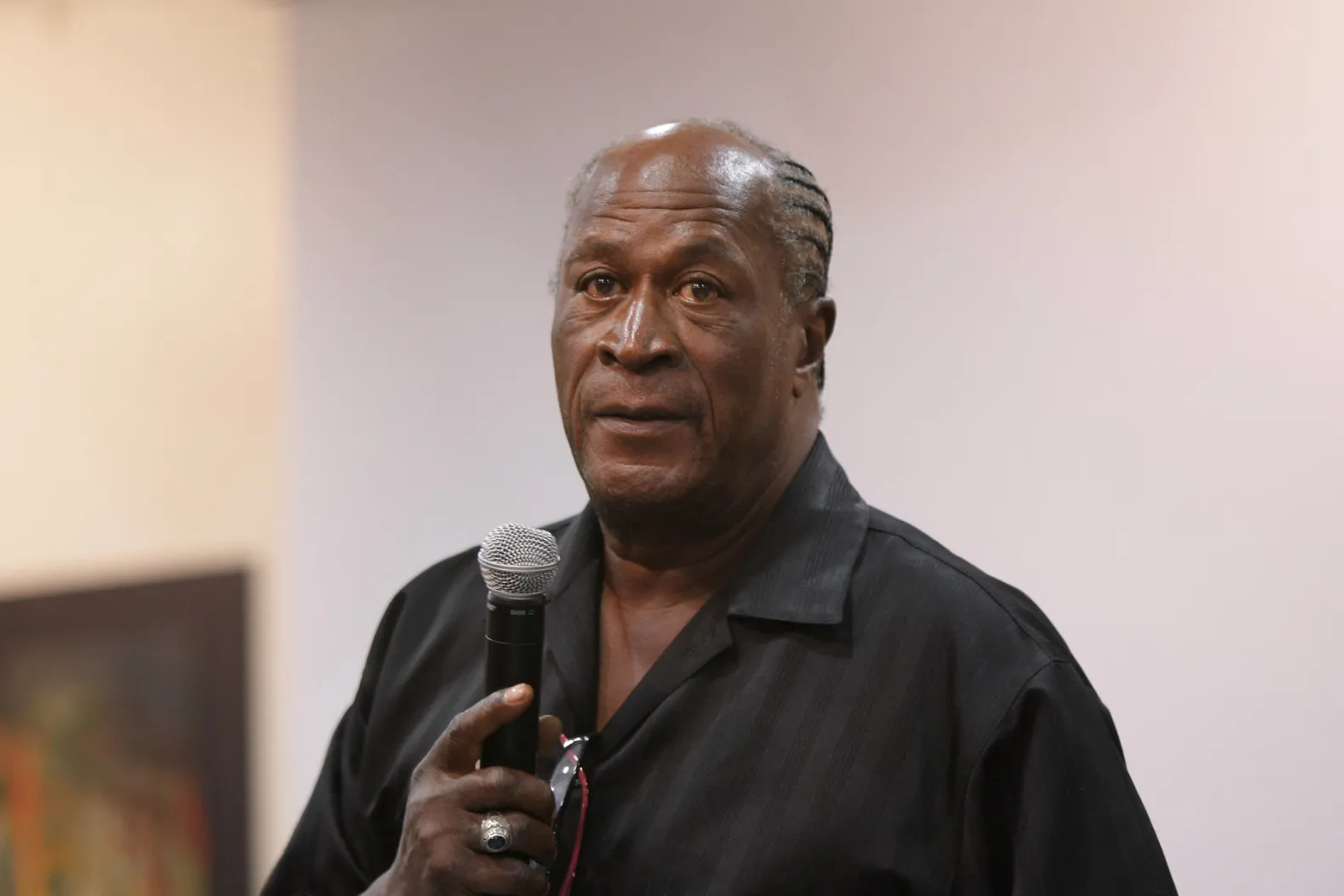John Amos, the iconic actor best known for his roles in “Good Times” and “Roots,” passed away on August 21, 2024, at the age of 84. The news of his death, however, was not made public until October 1, 2024, sparking controversy and reigniting a family feud. The cause of death has now been revealed as congestive heart failure, shedding light on the circumstances surrounding the beloved actor’s passing.
A Legendary Career
John Amos’s career in television, film, and theater spanned over five decades, leaving an indelible mark on the entertainment industry. He rose to fame playing James Evans Sr. on the groundbreaking sitcom “Good Times,” which aired from 1974 to 1979. The show was one of the first to feature an African American two-parent family on prime-time television, and Amos’s portrayal of a hardworking, principled father resonated with audiences across America.Beyond “Good Times,” Amos earned critical acclaim for his role as the adult Kunta Kinte in the landmark miniseries “Roots” in 1977. This performance earned him an Emmy nomination and solidified his status as a powerful dramatic actor. Throughout his career, Amos appeared in numerous television shows and films, including “The Mary Tyler Moore Show,” “The West Wing,” “Coming to America,” and “Die Hard 2.”
The Circumstances of His Passing
John Amos died on August 21, 2024, at a hospital in Inglewood, California. According to the death certificate obtained by People magazine, the cause of death was congestive heart failure. The certificate also revealed that Amos was cremated on August 30, just nine days after his passing, without an autopsy being performed.The delay in announcing Amos’s death has raised questions and fueled ongoing tensions between his children, Shannon and K.C. Amos. The news of his passing was not made public until over a month after his death, which has led to speculation and controversy within the family and among fans.
Family Feud and Controversy
The revelation of John Amos’s death has exacerbated a pre-existing conflict between his children. Shannon Amos, his daughter, expressed shock and dismay upon learning of her father’s passing through media reports. She took to social media to voice her concerns, stating that she and other family members were left with numerous questions about the circumstances surrounding his death.K.C. Amos, John’s son, was reportedly the one who informed law enforcement about his father’s passing. This has led to further tension between the siblings, as Shannon has previously accused K.C. of elder abuse and financial exploitation of their father.The family dispute dates back to June 2023, when Shannon launched a GoFundMe campaign, claiming it was necessary to fund her father’s care. John Amos himself refuted these allegations in an interview, asserting that he was “doing well” and that the campaign misrepresented his situation.
Legal Complications and Investigations
The family conflict has involved legal action and investigations. In July 2023, K.C. Amos was arrested after Shannon alleged he had sent her threatening text messages. Authorities in Los Angeles initiated an investigation but ultimately closed the case in April 2024 without filing charges against either sibling.Shannon Amos and her goddaughter, Amy Goudy, have suggested that John Amos’s cremation may have been carried out to prevent any potential investigation into the circumstances of his death. However, John Amos’s publicist, Belinda Foster, has stated that it was the actor’s own wish to be cremated and to delay the announcement of his death.
John Amos’s Legacy
Despite the controversy surrounding his passing, John Amos’s legacy as an actor and cultural icon remains intact. His contributions to television and film, particularly his groundbreaking roles in “Good Times” and “Roots,” helped pave the way for more diverse and authentic representations of African American families in media.Amos was known for his commitment to portraying strong, positive Black characters and was not afraid to speak out against stereotypes and inauthentic portrayals. His clash with producers on “Good Times” over the direction of the show demonstrated his dedication to authentic representation, even at the cost of his role on the series.Throughout his career, Amos received numerous accolades, including an Emmy nomination and an NAACP Image Award. He was inducted into the New Jersey Hall of Fame in 2020, recognizing his contributions to the arts and his roots in the state.
Remembering John Amos
As fans and colleagues mourn the loss of John Amos, many are reflecting on the impact he had both on and off-screen. His portrayal of James Evans Sr. on “Good Times” provided a positive role model for African American fathers and families, while his performance in “Roots” helped bring the brutal reality of slavery to a wide television audience.Beyond his acting career, Amos was also known for his work in theater, including his one-man show “Halley’s Comet,” which he performed for over two decades. He was also involved in various charitable endeavors, including the Halley’s Comet Foundation, which he established to teach at-risk youth sailing skills.
Conclusion
The revelation of John Amos’s cause of death as congestive heart failure brings some closure to the circumstances surrounding his passing. However, the delay in announcing his death and the ongoing family dispute have cast a shadow over what should be a time of remembrance and celebration of his life and career.As the entertainment industry and fans worldwide pay tribute to John Amos, his legacy as a trailblazing actor, committed activist, and beloved television father figure will undoubtedly endure. Despite the controversies surrounding his passing, Amos’s contributions to American culture and his powerful performances will continue to inspire and entertain future generations.John Amos’s life and career serve as a testament to the power of perseverance, integrity, and the importance of authentic representation in media. As we remember him, we celebrate not only his artistic achievements but also his unwavering commitment to portraying strong, dignified African American characters that have left an indelible mark on television and film history.
